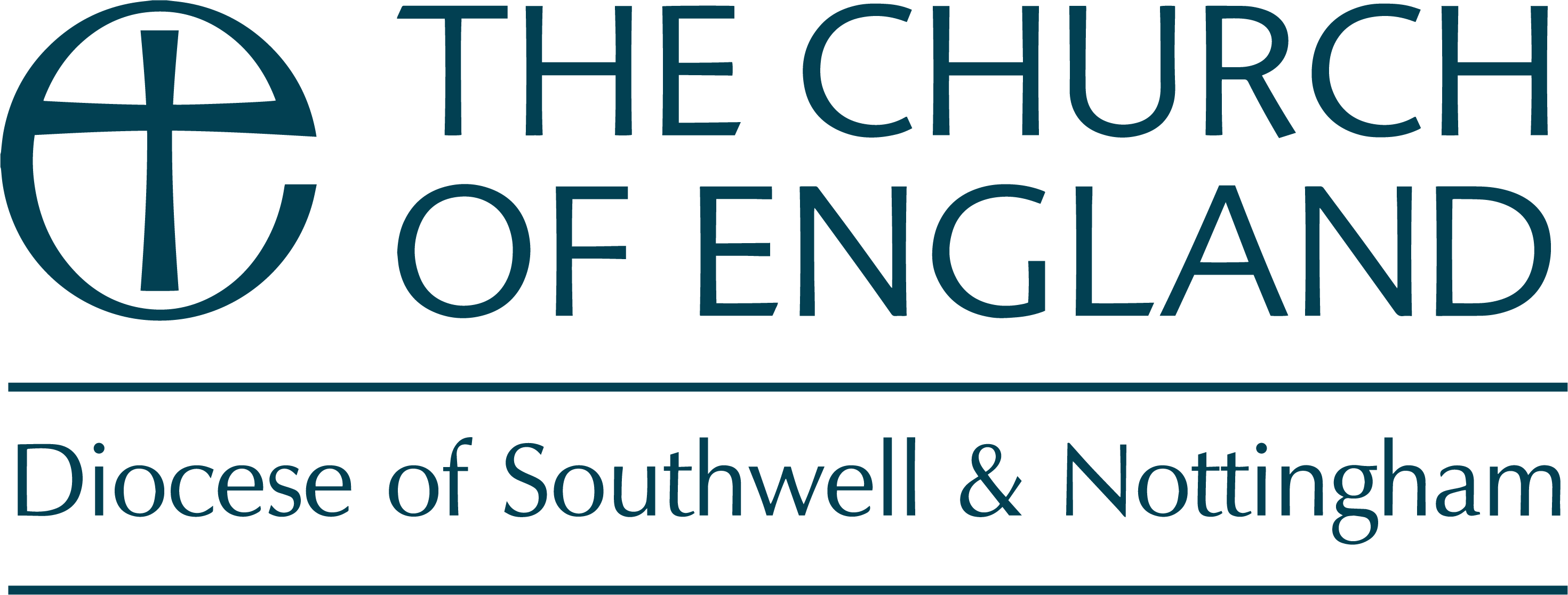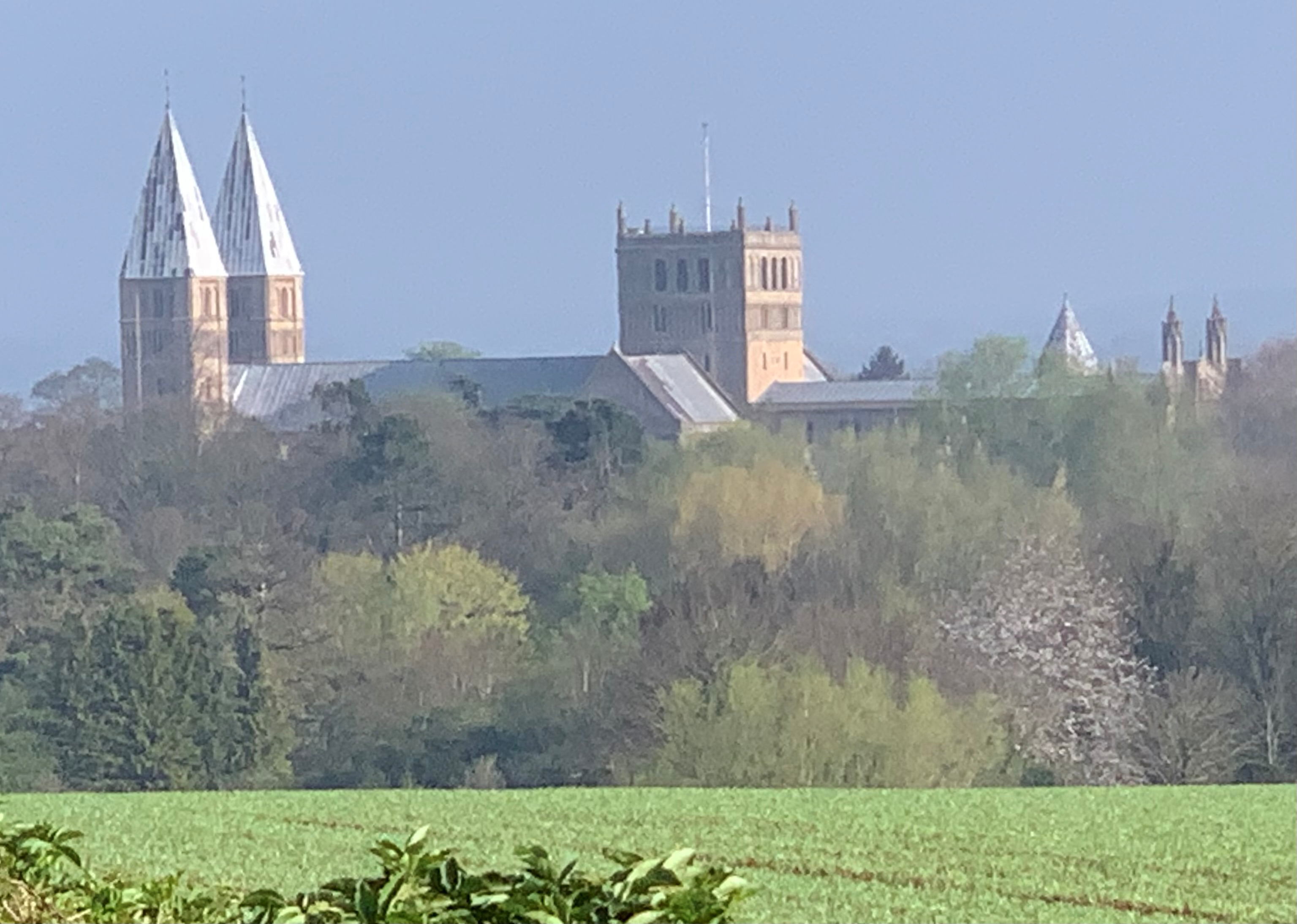Bishop Paul’s Easter Sermon in Southwell Minster
Easter Sunday in Southwell Minister 17th April 2022
Acts 10:34-43 and John 20:1-18
“Mary Magdalene went and announced to the disciples, ‘I have seen the Lord’”.
Mary is the very first person to announce the good news that we now celebrate this Easter morning, with millions of people across the world. And from this moment on, because of the resurrection of Jesus Christ from the dead, there is always hope.
After two years living through a pandemic, with a rising cost-of-living crisis, and now a brutal war in Ukraine, with the fear of widening conflict in Europe and beyond, hope for our world is in short supply.
This may also be true for you on a more personal level. At some point in our lives most of us will have experienced a sudden loss of hope: with the death of a loved-one, a relationship that is irretrievably broken, a loss of confidence, chronic illness, depression and despair. These things can leave us in a very dark place with little sense of hope.
Watching someone you dearly love suffer, unable to help them or even get to them, is perhaps one of the most traumatic experiences imaginable. It’s what has made some of the personal stories coming out of Ukraine so heartbreaking. One father who couldn’t shield his wife or young son from the sudden blast that shattered their home was crumpled up, shaking uncontrollably beside the shallow gave where he had to bury them. This is not the life God meant for us.
Mary Magdalene was witness to the traumatic death of Jesus, whom she loved very deeply. It is still dark when she comes to the tomb that morning and her grief is instantly magnified by the fear that his body has been taken. Without delay she goes to Simon Peter and the other disciple to tell them what’s happened and seek their help. They rush to the garden and see the empty tomb and the stripes of linen where Jesus body had been laid. They go away wondering what this could mean, but Mary stays there weeping, still looking to find Jesus’ body, and she will not give up her search.
The decisive turning point in John’s narrative is the moment Mary hears Jesus speak her name. This is the moment all her fears are swept away.
She was searching for a dead body and now she has met a living person. The resurrection of Jesus, as told by John, is about a new creation, a fresh start for life and relationships, with a love between Jesus and the disciple that is stronger than death, at the centre.
The English word hope is much weaker than the biblical word, elpida. It means ‘profound life-changing certainty’, rather than merely wishful thinking or a positive outlook and optimism. It is, as the apostle Peter later explained, “new birth into a living hope through the resurrection of Jesus Christ from the dead.”
We can feel so powerless in the face of suffering, and the cruelty of injustice only intensifies the pain. But the same power that raised Jesus from the dead can be at work in us and in the world, bringing about a new creation. This is not a power that coerces or manipulates or forces itself upon us, it is the power of a love that is irresistibly good and irrepressibly hopeful. This is the power of the love of God that changed the trajectory of human history. And by believing in the death and resurrection of Christ for us, we can be profoundly certain of the forgiveness of sin and the promise of eternal life with him.
Over the past seven weeks, so many of the news bulletins from Ukraine, have been prefaced with the stark warning, ‘our report contains some scenes which viewers may find distressing.’
John might have given the same warning to his readers as he described the events of that first Good Friday: ‘you may find some of these scenes distressing.’ It’s why an anxious parent once told me they don’t take their children to Good Friday services because it’s all about death. In a way you can understand that, and it requires sensitivity and skill to tell the story of the cross and explain it to little ones. But it would be tragic if we cannot help our children think about the reality of human suffering before they see or experience it for themselves, and to know that on the cross God suffers with us and for us to bring us salvation, ‘for God so loved the world’.
On Easter morning it was more a case of ‘look away now if you don’t want to know the result.’ But why would anyone want to do that when a new and living hope for our world was rising with the sun. Sadly, for all kinds of reasons, too many only take a glance and look away, and miss out on the deep joy contained for them in this most wonderful day in history.
Even those of us who know the result can let Easter pass us by without going deeper into the significance of this story for us and our world. Don’t look away or miss out, take a closer look.
If you would find it helpful I have a book I would be pleased to give you, by Tim Keller called Hope in Times of Fear – The Resurrection and the Meaning of Easter. If it raises questions of faith that you’d like to explore, then you can arrange to meet with me, or with Canons Richard and Paul, or Dean Nicola, and we would be pleased to talk and pray with you. Or you can pass it on to someone else.
John invites his readers to go to the tomb, to see the that it was empty, to watch Mary’s tears turn into joy, and observe that joy cascading into the lives of the other disciples, as they hear the news and meet the risen Jesus. And John is inviting us, like them, to receive the same joy and the same peace, the gift of sins forgiven and the promise of new life, and new relationships with God and one another, and to be filled with the same Holy Spirit they were filled with.
With all that is happening in our world at the moment, and perhaps in your life too, we need the Easter story as must as ever.
Here is a true story of hope over despair, of light over darkness, love over hatred, of forgiveness over shame, and kindness over aggression.
This is good news for everyone, everywhere this Easter. This is the living hope into which we can be reborn. And in a time of scarcity, here is the gift that will never be taken from us: no rising prices, no war, no conflict, no pain, not even death can do that, for as Paul eloquently puts it, “In all these things we are more than conquerors through him who loved us…and nothing in all creation can sperate us form the love of God that is in Christ Jesus our Lord.” (Romans 8:37, 39)
May God bless you and fill you with his joy and peace this Easter!



